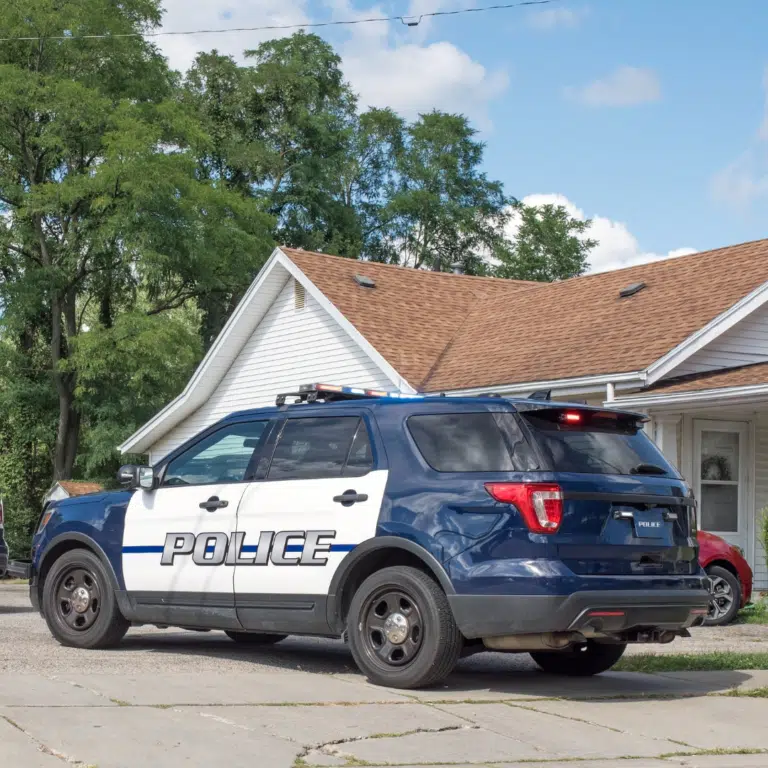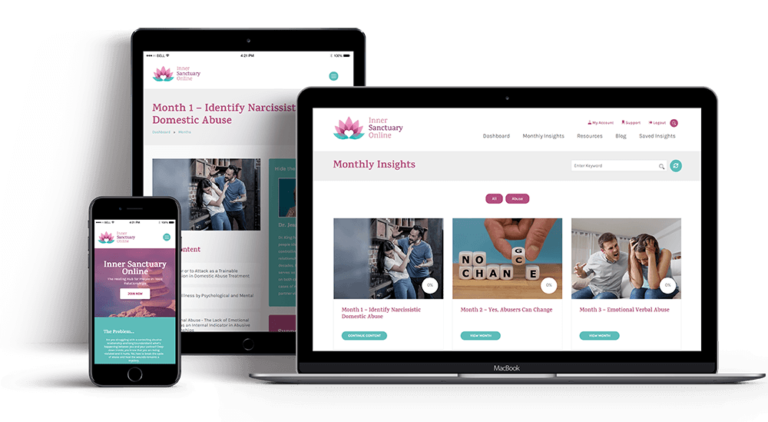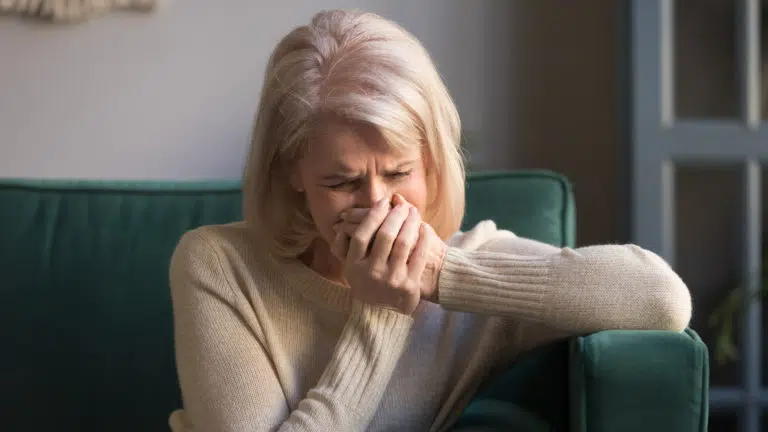Break the Cycle of Abuse Transform Your Relationship Today
Discover Healing and Harmony with our Expertly Designed Program
When you seek to end physical, verbal and or emotional abuse, you long for a solution that can save your relationship. You dream of reinstating the love and harmony you once had…and you desire peace and well-being with your intimate partner.
We understand your desire to stop the abuse and restore your family’s happiness. Often, people turn to law enforcement and healthcare services, only to hear, “Leave your abusive partner before it gets worse.” While that may be necessary at times, it’s not the first choice for many.


Our Solution: A Proven Path to Healing
Our “Tried and True” Intimate Partner Abuse Treatment Program, designed by Dr. Jeanne King, helps you and your partner break the cycle of narcissistic domestic abuse while fostering mutual respect, support and love without violence.
With over two decades of specialized experience in domestic abuse interventions, Dr. Jeanne King has designed the Intimate Partner Abuse Treatment Program to help couples heal and grow together. Dr. King is a leading authority on identifying the subtle communication patterns of narcissistically abusive relationships. She brings decades of psychotherapeutic expertise to facilitate change in these most challenging dysfunctional dynamics. Learn more about her impressive background here: About Dr. King.
Stop Abuse Before It Spirals Out of Control
An Integrated Psycho-Educational and Therapeutic Protocol
The Intimate Partner Abuse Treatment Program is a finely tuned domestic violence treatment protocol, integrating a psycho-educational intervention promoting change for those struggling with abusive behaviors and a psychotherapeutic intervention facilitating healing for domestic abuse survivors.


For Those Struggling with Abusive Behaviors
The Intimate Partner Abuse Treatment Program provides men and women, who have been abusive in their intimate relationships, an opportunity to change their violent abusive behavior.
The intervention consists of education, support, and therapeutic components that address the maladaptive use of power and control in relationships. The primary treatment goal is the development of new skills to facilitate non-violent and non-abusive behavioral responses with their intimate partner.
For Survivors Seeking Healing
The Intimate Partner Abuse Treatment Program offers healing remedies for the domestic abuse survivor. It provides the victim with the awareness of what perpetuates the cycle of abuse and effective strategies to interrupt the insidious cycle.
Healing from domestic abuse is paramount to the treatment. Survivors complete the intervention by mending their psychological trauma and emotional pain, while changing the habits of victimization and patterns of co-dependency.
What Clients Say About Our Program
“My wife and I are traveling and I had a chance to read your article on hearing “no” this morning. Two years ago, that article may have bothered me, but with your help and that of my self-help practices, I found myself cheering you on as I read through it.”
“You helped me see how I was getting my needs met hurting her.”
“Thank you so very much for the tremendous help you have given along the way. Your insights have been life changing. I truly don’t believe we would be where we are without your expertise and guidance. You were my last hope. And it worked.”
“I hated the way I treated my spouse, but didn’t know how to do it differently. This program has given me the skills I need to make the changes.”
“Ever since I realized what you meant by accountability, I don’t mouth off at her when I’m vulnerable. We are practicing ‘fair fighting.’ Thank you for helping us save our family.”
“I am stronger and happier, and people tell me they see me being myself again.”
“I know how to resolve conflict in a constructive manner now without being violent or abusive.”
“Just know you gave me immense strength and clarity in every session that has carried over into my everyday life so that I don’t feel like a victim but more like a woman who can distinguish with clarity what is being done to her.”
“I am grateful that over time that you helped me discover that even in the most volatile/dangerous situations, that I am not powerless! And in those turbulent times…I either have the choice to contribute to the escalation of the situation or more importantly, the power in my case, to deescalate the situation and keep myself, my husband and those I love safe.”
How the Intimate Partner Abuse Treatment Program Works
This intervention is specifically designed to interrupt the cycle of domestic abuse and heal the injuries caused by intimate partner violence. Unlike traditional marital therapy, each person engages in the therapeutic process individually, as well as with their partner as a couple.
This treatment is not an opportunity to hide behind the abuse dynamic or manipulate the therapist to side with either party. Instead, each person utilizes their individual therapeutic alliance for personal growth, healing and change.
What Those Struggling with Abusive Behaviors Can Expect
The primary focus of the Intimate Partner Abuse Treatment Program is becoming aware of and accountable for their experience, behavior, and the impact of their actions on others.
Through integrative experiential, cognitive insight-oriented therapy, intensive inquiry, and energy psychology, participants recognize how the use of “power and control” tactics foster interpersonal conflict. Ultimately, they cultivate healthy strategies for personal and relationship harmony.

Mutual respect and mutual regard are key learning and healing outcomes of the Intimate Partner Abuse Treatment Program. In addition to the obvious relationship benefit, participants appreciate the positive changes they experience from within and the transformative effect this has on their lives in general.

What Survivors Can Expect
The victim’s process is parallel and collaborative to their partner’s treatment, while individually transformative. The focus of their intervention is on healing from the impact of domestic abuse and interrupting the abuse dynamic.
The survivor learns the subtle communication patterns of battering relationships, along with what supports and what interrupts the abuse dynamic. Their heightened awareness prevents reflexive habits of victimization and interactional patterns of co-dependency.
Therapy involves finding her/his own inner voice through a systematic process of psychotherapeutic inquiry. The patient develops the capacity to access their own internal truth, and cultivates the ability to express their feelings accurately and express their needs effectively.
Domestic abuse survivors participating in this therapeutic process heal the impact of interpersonal violation, build self-esteem and self-confidence, and grow to embrace that which they love in their intimate relationship.
Frequently Asked Questions about
the Intimate Partner Abuse Treatment Program
Yes. Emotional abuse and verbal abuse are forms domestic abuse and, in fact, are the most common forms of intimate partner abuse also known as domestic violence.
The denial is the resistance, which is very normal before and beginning treatment. Effective therapy is designed to address this. So, you acknowledge that your partner’s denial is part of the abuse dynamic, and you expect effective therapy to dismantle it. You start the therapy by yourself and let the therapist help engage your partner in the process. We are trained in dealing with denial and resistance.
You won’t. And the more you try, the more resistant your partner will be.
However, you can get yourself involved in the domestic abuse therapeutic process and then encourage your partner to do likewise for the sake of your relationship. During the process of therapy, the therapist will confront your partner making you “the problem.”
Currently, your partner may think you are the problem when, in fact, his/her response to you is the problem. A cornerstone of your partner’s part in the therapy is their taking responsibility for their own behavior.
We recommend that you begin the program individually just as you may have previously initiated marital therapy. We understand your partner’s resistance and the underlying dynamics in play. We will work to bring him/her into the sessions with you to engage his/her involvement in his/her own therapeutic process.
This program will actually help your partner understand and resolve his/her being threatened by your empowerment. The ultimate goal of the program is for him/her to become an ally in the process of your empowerment and you in theirs.
Marital Therapy encourages the victim to assume responsibility for the battering behavior. And in so doing, it discourages the abuser from becoming fully accountable for his/her battering. The net result is that this intervention maintains, and can even exacerbate, the abuse dynamic.
Domestic Abuse Therapy, on the other hand, is designed to promote batterer accountability and full ownership of abusive behavior, and help the person develop nonviolent/non-abusive alternative ways of interacting with themselves and other.
Anger Management Treatment primarily addresses the modulation of emotion and modification of behavior when an individual is emotionally escalated.
Domestic Abuse Treatment, while addressing the above issues, differs significantly from Anger Management Treatment in that it focuses extensively on the dynamics of abusive power and control tactics used in domestic relationships.
Good point. Yes, we do. Rest assured that change is possible, but highly unlikely without an effective treatment intervention. It is also important to be mindful of the situations in which change can occur and those in which it is not likely to occur.
To provide you with examples of batterer’s successful treatment outcome through a domestic violence intervention, see sample case studies highlighting core issues:
Successful Outcome in Domestic Abuse Therapy Despite Initial Denial: A Case Study
Breaking the Cycle of Emotional and Verbal Abuse in Marriage: A Case Study
Domestic Abuse Treatment Addresses Abuser’s Emotional Dependence: A Case Study
Domestic Violence Treatment Stops Domestic Terror: A Case Study
Taking Responsibility and Meaningful Change in Domestic Abuse Therapy: A Case Study
Domestic Abuse Counseling Reframes Privileged Thinking: A Case Study
Domestic Violence Counseling Improves Intimate Partner Communication Skills: A Case Study
The base program is 26 individual weekly sessions. Additional individual and/or joint sessions with your intimate partner are provided as needed to meet the goals of the intervention.
Not necessarily. While the general expectation for success with this intervention is to complete the entire program, there may be individual cases where segments of the program are sufficient.
All sessions take place on the telephone or via Zoom.
The typical session duration is one therapeutic hour (50 to 60 minutes).
The program is billed session by session, payable monthly, and the cost is $175 for the initial consultation and $250 per individual 50-minute sessions thereafter. Conjoint 60-minute sessions are $300. A sliding fee scale is available for those who are eligible.
You are responsible for payment for these services. We are not staffed to assist in helping you secure reimbursement for treatment or consulting services.
Yes, ongoing support is available. You can obtain follow-up sessions at varying intervals (one month, three months, six months and one year). Or, you can secure ongoing weekly, bi-monthly or as needed support to maintain your progress.
Not currently. However, the mechanism is in place for supplemental and aftercare support groups for patients in the Intimate Partner Abuse Treatment Program.
The best way to determine program appropriateness is through an individual personal consultation. You can reserve an appointment for this session from this link below which is connected to our original website preventabusiverelationships.com (2007-current), using 1shoppingcart.com
Schedule Your Consultation and Reclaim Your Life
Contact us today to schedule your consultation with Dr. Jeanne King. We will contact you within 24-48 hours with available appointment times. Your payment reserves the consultation. We look forward to helping you.
If you are unable to afford private services, explore our comprehensive resources at InnerSanctuaryOnline.org for valuable insights and guidance.
May there be peace and well-being for you and yours.
Kindest regards,
Dr. Jeanne King, Ph.D.
Partners in Prevention
